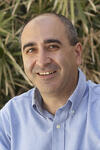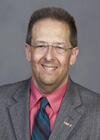In The News: Department of Political Science
Around two years ago, before this presidential race started, President Barack Obama had said that it would be difficult for Democrats to have another term after him. People may want a new car smell, he put it. But, he put in all his might in rallying for his former secretary of state Hillary Clinton, even roping in his ace card—wife Michelle. In the last days of the race, Obama worked almost full-time in the campaign, personally naming and shaming Donald Trump. But, he could not undo his prophecy.

Nevada’s perpetual ballot loser “none” took more votes than ever before in Tuesday’s presidential contest, reflecting dissatisfaction among some of the electorate with both major party candidates.
After a close race fueled by record outside spending, Catherine Cortez Masto, a Democrat, won the Senate contest in Nevada on Tuesday to become the first Latina senator. She defeated Representative Joe Heck to fill the seat of Senator Harry Reid, the Democratic minority leader, who is retiring after three decades in the Senate. Outside groups spent nearly $90 million on the tight race, but the biggest factor may have been Donald Trump.

Election Day is anticlimactic for most voters, who can’t wait for the phone calls to cease and the direct mail to stop. Early voting began in Southern Nevada in 1994 as a limited pilot program and was established in Clark County for the 1996 elections. Since 2000, more people in Clark County have voted before Election Day than on Election Day. By 2012, between early voting and absentee voting, 69.3 percent of those in Nevada who voted in the presidential election in 2012 did so before Election Day, an increase from 66.9 percent in 2008.
Rep. Tammy Duckworth unseated incumbent Republican Sen. Mark Kirk in Illinois on Tuesday night, giving Democrats an early pickup as they seek to wrest control of the upper chamber from the GOP.
Republican presidential nominee Donald J. Trump won the race to the White House, a victory that will shake the Washington establishment to its very core, writes Newsweek's Matt Cooper.

Jimmy Vaccaro, the 71-year-old doyen of Las Vegas oddsmakers, says that in the last week only five to 10 people have come to his counter at the South Point Casino's Sports Book lounge to ask him about the presidential election. "Used to be five to 10 people every two hours," Vaccaro says. "The interest is waning. We're worn out here."

Jimmy Vaccaro, the 71-year-old doyen of Las Vegas oddsmakers, says that in the last week only five to 10 people have come to his counter at the South Point Casino's Sports Book lounge to ask him about the presidential election. "Used to be five to 10 people every two hours," Vaccaro says. "The interest is waning. We're worn out here."
The US presidential campaign neared its end last night in the same angry tone it began, with Republican Donald Trump calling Democrat Hillary Clinton a "phony" and Clinton accusing him of splitting the country.
Recent polls in Nevada, taken after James Comey, the director of the FBI suggested on October 28th that he might have new evidence relating to the inquiry into Hillary Clinton’s use of a private email server, appear to show that Mr Trump and Mrs Clinton are neck-and-neck to win the state’s six electoral votes. But polling in the Silver State is notoriously tricky. In the 2008 Republican primary, the polling average suggested that Mitt Romney held just a five-point lead over John McCain. Mr Romney ended up trouncing Mr McCain by 38 points. In the general election that year, a batch of polls averaged by Real Clear Politics, a political news website, suggested Barack Obama would win Nevada by 6.5 points. He triumphed by 12.5 points. Most polls predicted that Nevada senator Harry Reid would lose when he ran for reelection in 2010. He prevailed by six points.

It was on Nov. 8, 1864, that Nevadans cast their ballots for the first time in a U.S. presidential election, exactly 152 years ago today. Republican President Abraham Lincoln was fighting for re-election against Democrat George McClellan, a former Union general running on a peace platform, when the Silver State joined the Union barely a week earlier, on the date now known as Nevada Day, October 31.

It was on Nov. 8, 1864, that Nevadans cast their ballots for the first time in a U.S. presidential election, exactly 152 years ago today. Republican President Abraham Lincoln was fighting for re-election against Democrat George McClellan, a former Union general running on a peace platform, when the Silver State joined the Union barely a week earlier, on the date now known as Nevada Day, October 31.


